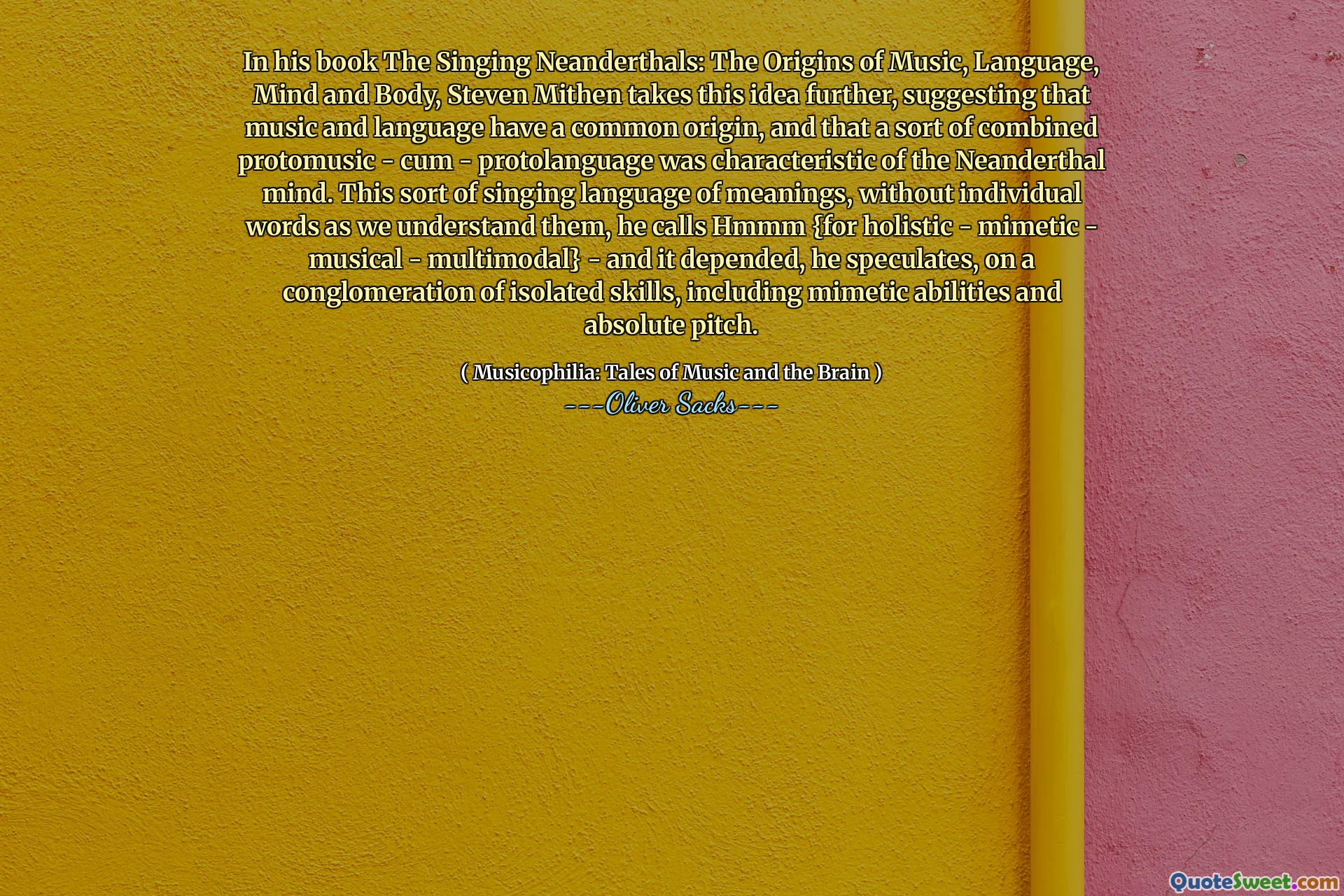
In his book The Singing Neanderthals: The Origins of Music, Language, Mind and Body, Steven Mithen takes this idea further, suggesting that music and language have a common origin, and that a sort of combined protomusic - cum - protolanguage was characteristic of the Neanderthal mind. This sort of singing language of meanings, without individual words as we understand them, he calls Hmmm {for holistic - mimetic - musical - multimodal} - and it depended, he speculates, on a conglomeration of isolated skills, including mimetic abilities and absolute pitch.
Steven Mithen's hypothesis, as presented in this passage, provides a fascinating bridge between the worlds of music and language, positing that both share a primordial common root. The concept of a "singing language of meanings" challenges traditional views that strictly separate linguistic and musical faculties. In this view, early human ancestors like Neanderthals communicated not through discrete words but through a holistic, multimodal synthesis that wove together mimetic gestures, musicality, and meaning.
This framing integrates scientific understanding with a poetic notion of prehistoric communication. It evokes a time when the boundaries between what we now label as music and language were blurred—a proto-communicative state where emotional intonation, rhythm, pitch, and gesture collectively conveyed complex information. The term Hmmm, standing for holistic, mimetic, musical, and multimodal, encapsulates this synergy beautifully, hinting at a sophisticated cognitive landscape where different isolated skills converged to form a unified communicative system.
Reflecting on this theory, I find it expands our appreciation for the evolution of human cognition and culture. Music and language might not be separate inventions but two faces of an ancient, intertwining process crucial to social bonding, emotional expression, and cooperative survival. It also reminds me of how music today continues to extend beyond verbal constraints, conveying what language sometimes cannot. Thus, Mithen’s ideas add a rich dimension to Oliver Sacks's explorations in "Musicophilia," as both perspectives emphasize music's profound neurological and anthropological impacts.
Ultimately, this notion encourages us to reconsider the origins of human communication, suggesting a primal harmony between sound, gesture, and meaning that transcends many conventional disciplinary boundaries.






